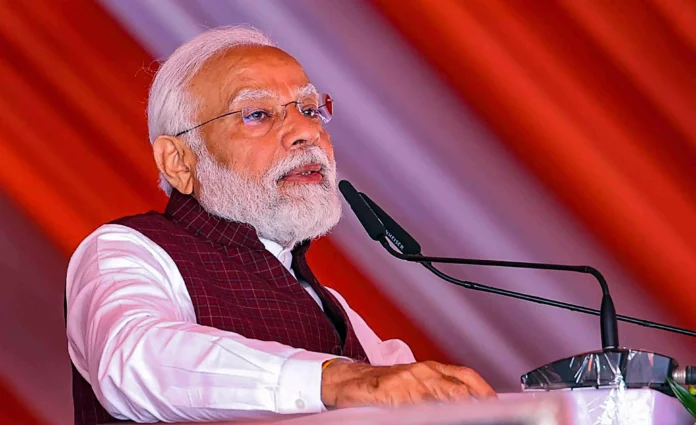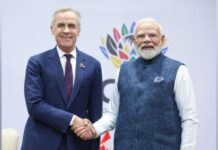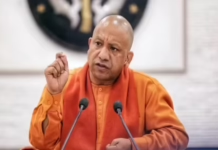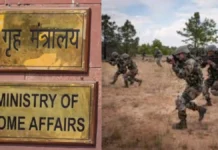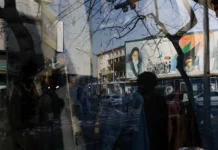NEW DELHI: Prime Minister Narendra Modi on Sunday highlighted different aspects of the Maha Kumbh 2025 and said that this mega event is an “extraordinary” confluence of equality and harmony packed with “unforgettable crowd” and “unimaginable scenes.”
As the Maha Kumbh 2025 goes global, the Prime Minister said that the festival of Kumbh celebrates “unity in diversity” as there is no discrimination or casteism anywhere in this tradition and people from all over India and the world gather together at Sangam.
Addressing the 118th episode of Mann Ki Baat and the first of this year, PM Modi said, “The Maha Kumbh has begun in Prayagraj. Unforgettable crowd, unimaginable scene and extraordinary confluence of equality and harmony… This time many divine yogas are also being formed in Kumbh. This festival of Kumbh celebrates unity in diversity. People from all over India and the world gather on the sands of Sangam. There is no discrimination or casteism anywhere in this tradition that has been going on for thousands of years. Everyone takes a dip in the Sangam, has a community feast together and takes Prasad together. That is why Kumbh is the Maha Kumbh of unity.”
The Prime Minister said that similar to Maha Kumbh, ‘Pushkaram’ is organised in the southern parts of India on the banks of Narmada, Godavari, Krishna and Kaveri rivers.
“The organisation of Kumbh also tells us that our tradition binds the whole of India together. The ways to follow beliefs are similar in the northern and southern parts of India. Kumbh is organised in Prayagraj, Ujjain, Nashik and Haridwar, similarly, Pushkaram is organised in south India in rivers of Narmada, Godavari, Krishna and Kaveri. Both festivals are connected to our beliefs and traditions of our holy rivers. Similarly, from Kumbhkonam to Thirukadaiyur, from Kudavasal to Tirucherai, several temples are associated with the Kumbh,” he said.
Expressing pride, PM Modi said that the Maha Kumbh has gained global recognition and popularity.
Emphasising that a large number of youths participated in the ongoing Kumbh, PM Modi said that when youth is associated with its traditions, its bright future is ensured.
Speaking about the Gangasagar Mela, he said that lakhs of devotees took a dip in the Gangasagar on the occasion of Makar Sankranti.
PM Modi said, “This time, youth is participating in huge numbers in Kumbh and when youth is associated with its traditions, its bright future is ensured. This time we are also witnessing digital footprints on a large scale in Kumbh. This global popularity of Kumbh is a proud moment for all Indians. A few days ago, Gangasagar was organised in West Bengal. On the occasion of Sankranti, a huge number of devotees took a dip in the Gangasagar.”
The Prime Minister said that festivals such as Kumbh, Pushkaram and Gangasagar Mela encourage social interactions, harmony and unity and connect the people of India with its traditions.
“Our festivals Kumbh, Pushkaram and Gangasagar Mela encourage our social interactions, harmony and unity. It connects the people of India with its traditions. The way our scriptures have emphasised religion, wealth, desire and salvation, similarly our festivals strengthens spiritual, social, cultural and economic aspects,” he said.
Speaking on the celebrations of the first anniversary of Ram Lala consecration in Ayodhya, PM Modi said that we have to save our heritage while being on the path of development.
“This year we also celebrated the first anniversary of Ram Lala consecration on the Paush Shukla Dwadashi on January 11. That day lakhs of devotees took blessings of Lord Ram. This day of Puash Shukla Dwadashi has become a day of Prathistha Dwadashi Day. We have to save our heritage while being on the path of development and move forward while taking inspiration from it,” he added.
Mann Ki Baat is Prime Minister Modi’s monthly radio programme, where he discusses important national issues with the citizens of India. The programme is broadcast on the last Sunday of every month. However, this year it is being broadcast on the third Sunday due to celebrations of Republic Day on the last Sunday of the month.
Launched on October 3, 2014, Mann Ki Baat aims to connect with various segments of Indian society, encompassing women, the elderly, and the youth.
Apart from 22 Indian languages and 29 dialects, ‘Mann Ki Baat’ is broadcast in 11 foreign languages, including French, Chinese, Indonesian, Tibetan, Burmese, Baluchi, Arabic, Pashtu, Persian, Dari, and Swahili. Mann Ki Baat is broadcast by more than 500 centres of All India Radio. (ANI)
Also Read: Maha Kumbh proud symbol of India’s spiritual, cultural heritage: Uttar Pradesh CM Yogi

